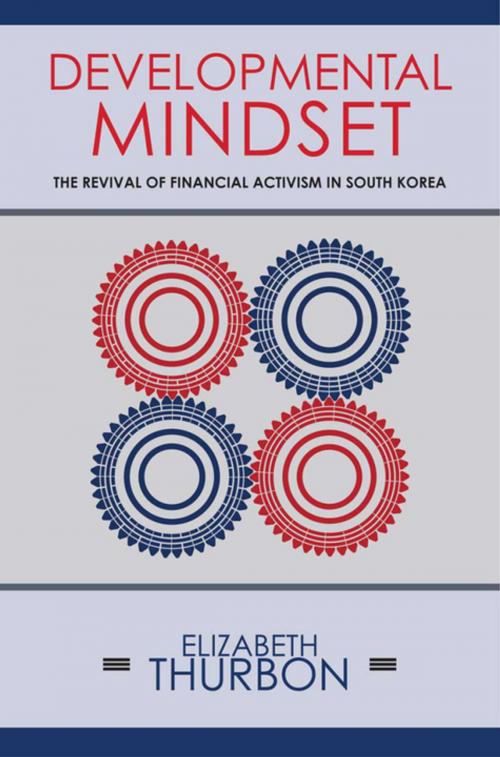Developmental Mindset
The Revival of Financial Activism in South Korea
Nonfiction, Social & Cultural Studies, Political Science, Politics, Economic Conditions, Business & Finance, Finance & Investing, Finance| Author: | Elizabeth Thurbon | ISBN: | 9781501704161 |
| Publisher: | Cornell University Press | Publication: | June 9, 2016 |
| Imprint: | Cornell University Press | Language: | English |
| Author: | Elizabeth Thurbon |
| ISBN: | 9781501704161 |
| Publisher: | Cornell University Press |
| Publication: | June 9, 2016 |
| Imprint: | Cornell University Press |
| Language: | English |
The Asian financial crisis of 1997–1998 was supposed to be the death knell for the developmental state. The International Monetary Fund supplied emergency funds for shattered economies but demanded that states liberalize financial markets and withdraw from direct involvement in the economy. Financial liberalization was meant to spell the end of strategic industry policy and the state-directed "policy lending" it involved. Yet, largely unremarked by analysts, South Korea has since seen a striking revival of financial activism. Policy lending by state-owned development banks has returned the state to the core of the financial system. Korean development banks now account for one quarter of all loans and take the lead in providing low-cost finance to local manufacturing firms in strategic industries.Elizabeth Thurbon argues that an ideational analysis can help explain this renewed financial activism. She demonstrates the presence of a "developmental mindset" on the part of political leaders and policy elites in Korea. This mindset involves shared ways of thinking about the purpose of finance and its relationship to the productive economy. The developmental mindset has a long history in Korea but is subject to the vicissitudes of political and economic circumstances. Thurbon traces the structural, institutional, political, and ideational factors that have strengthened and at times weakened the developmental consensus, culminating in the revival of financial activism in Korea. In doing so, Thurbon offers a novel defense of the developmental state idea and a new framework for investigating the emergence and evolution of developmental states. She also canvasses the implications of the Korean experience for wider debates concerning the future of financial activism in an era of financialization, energy insecurity, and climate change.
The Asian financial crisis of 1997–1998 was supposed to be the death knell for the developmental state. The International Monetary Fund supplied emergency funds for shattered economies but demanded that states liberalize financial markets and withdraw from direct involvement in the economy. Financial liberalization was meant to spell the end of strategic industry policy and the state-directed "policy lending" it involved. Yet, largely unremarked by analysts, South Korea has since seen a striking revival of financial activism. Policy lending by state-owned development banks has returned the state to the core of the financial system. Korean development banks now account for one quarter of all loans and take the lead in providing low-cost finance to local manufacturing firms in strategic industries.Elizabeth Thurbon argues that an ideational analysis can help explain this renewed financial activism. She demonstrates the presence of a "developmental mindset" on the part of political leaders and policy elites in Korea. This mindset involves shared ways of thinking about the purpose of finance and its relationship to the productive economy. The developmental mindset has a long history in Korea but is subject to the vicissitudes of political and economic circumstances. Thurbon traces the structural, institutional, political, and ideational factors that have strengthened and at times weakened the developmental consensus, culminating in the revival of financial activism in Korea. In doing so, Thurbon offers a novel defense of the developmental state idea and a new framework for investigating the emergence and evolution of developmental states. She also canvasses the implications of the Korean experience for wider debates concerning the future of financial activism in an era of financialization, energy insecurity, and climate change.















